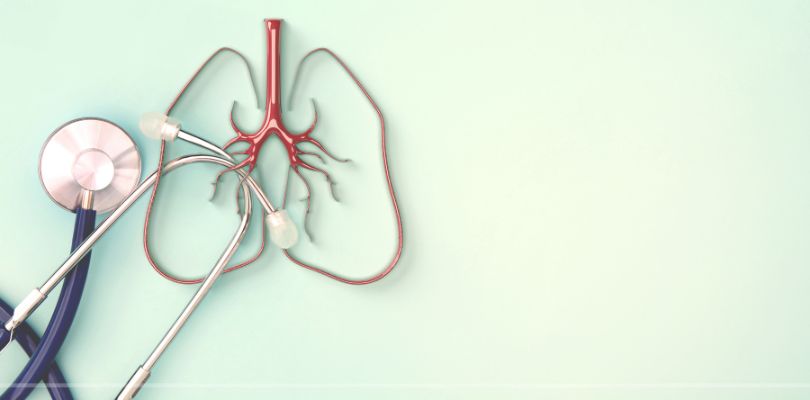What to Avoid for Better Health
Lung cancer is a serious disease that develops when abnormal cells in the lungs grow uncontrollably. While diet alone cannot prevent or cure lung cancer, certain lifestyle choices, including drink consumption, can impact overall health and potentially affect cancer progression. In this article, we’ll explore the worst drinks for lung cancer, and discuss treatments and causes related to the disease.
8 Worst Drinks for Lung Cancer
1. Sugary Sodas
Sugary sodas can contribute to weight gain and inflammation, which can be particularly harmful for individuals with lung cancer. Excess sugar can also negatively affect overall health and energy levels, which is crucial during cancer treatment.
2. Alcohol
Excessive alcohol consumption has been linked to various types of cancer, including lung cancer. Alcohol can weaken the immune system and interact with medications used in cancer treatment, making it harder for the body to fight the disease and recover.
The physical effects of fibro are well-known; however, the lesser-known mental health effects are just as troublesome. Here’s how a therapist can help you.
3. Caffeinated Beverages
Drinks high in caffeine, such as energy drinks and large amounts of coffee, can lead to dehydration and may cause discomfort for individuals undergoing cancer treatments. Staying hydrated with non-caffeinated fluids is important for overall health and managing side effects.
4. Acidic Juices
Citrus juices like orange or grapefruit juice are highly acidic and can cause irritation in the digestive tract, which can be uncomfortable for people with lung cancer, especially if they are experiencing treatment-related nausea or mucositis.
5. Carbonated Drinks
Carbonated beverages can cause bloating and discomfort, which can be problematic for individuals with lung cancer who may already be experiencing gastrointestinal issues. Opting for non-carbonated drinks can help reduce these symptoms.
6. High-Sugar Energy Drinks
Energy drinks, which are often high in both sugar and caffeine, can lead to rapid spikes in blood sugar levels and dehydration. These effects can be particularly troublesome for people with cancer, as maintaining stable energy levels and proper hydration is important.
7. Artificially Sweetened Beverages
Some studies suggest that artificial sweeteners might affect metabolism or have other adverse effects on health. While they might seem like a healthier alternative to sugary drinks, their long-term impact on cancer patients is still debated.
8. Flavored Alcoholic Beverages
Flavored liquors and cocktails can be high in sugars and artificial additives, which can contribute to inflammation and other health issues. Additionally, alcohol consumption itself can exacerbate cancer symptoms and interfere with treatment.
8 Best Drinks for Lung Cancer
1. Water
Water is the most crucial drink for hydration. Staying well-hydrated helps maintain bodily functions, supports digestion and alleviates side effects of treatments such as chemotherapy and radiation therapy. Aim for at least 8 cups of water a day, or more if needed.
2. Herbal Teas
Herbal teas like chamomile, ginger and peppermint can be soothing and provide relief from symptoms such as nausea or digestive discomfort. These teas are generally caffeine-free and can be enjoyed warm or cold.
3. Smoothies
Nutrient-rich smoothies made with fruits, vegetables and protein sources like yogurt or plant-based milk can offer a good balance of vitamins, minerals and protein. They are especially useful for those who have difficulty eating solid foods or need extra calories and nutrients.
4. Non-Dairy Milk
Almond milk, soy milk and oat milk are great alternatives for those who are lactose intolerant or prefer non-dairy options. These milk substitutes can be fortified with calcium and vitamin D, which are beneficial for bone health.
5. Broth-Based Soups
Clear broths, such as chicken or vegetable broth, provide hydration and essential nutrients while being easy on the stomach. They can also help soothe the throat and support digestion.
6. Coconut Water
Coconut water is a natural source of electrolytes, making it a good option for hydration and replenishment. It can help maintain electrolyte balance, especially if dehydration or imbalanced electrolytes are a concern.
7. Fresh Juices
Freshly squeezed juices made from non-acidic fruits and vegetables can be a good source of vitamins and antioxidants. Opt for juices that are low in sugar and avoid citrus fruits if they irritate the esophagus.
8. Electrolyte Drinks
Drinks designed to replenish electrolytes, like those used for sports or hydration solutions, can be beneficial for maintaining hydration and balancing electrolytes. Choose options with low added sugars and artificial ingredients.
Treatments for Lung Cancer
Treatment for lung cancer typically depends on the stage and type of cancer, and may include:
- Surgery: Removing the tumor or affected part of the lung through surgery can be an option, especially for early-stage cancers.
- Chemotherapy: Uses drugs to kill cancer cells throughout the body and is often used for more advanced stages of lung cancer.
- Radiation therapy: Uses high-energy rays to target and kill cancer cells. It is often used in combination with other treatments.
- Targeted therapy: Targets specific molecules involved in cancer cell growth and is used for cancers with certain genetic mutations.
- Immunotherapy: Helps the immune system recognize and attack cancer cells more effectively.
- Palliative care: Focuses on relieving symptoms and improving quality of life for patients with advanced cancer.
Sip Wisely
While avoiding certain drinks can help manage overall health and comfort for individuals with lung cancer, it's important to focus on a comprehensive treatment plan in consultation with healthcare professionals. Managing diet, staying hydrated and understanding the causes of lung cancer can help improve well-being and support the effectiveness of treatment.







